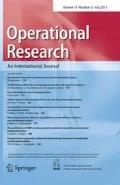The food industry in the EU is currently facing an era of changes and farmers need to adapt to the changing patterns induced by the food crisis, the global financial crisis, farm output price volatility, macroeconomic instability, climate change and a new post-2013 CAP. Throughout this unstable period, the impact of these changes on farmers’ incomes will be a key issue to be addressed by EU policy makers, thereby stressing the need for new comprehensive analytical tools, well-adapted to the Commission’s informatics environment and well-suited to reliably assessing the effects of the anticipated changes.
Since the recent radical reform of the CAP, markets have been extremely volatile, while farmers are becoming more exposed to risk as they have to cope with a deregulated and increasingly liberalized and competitive world market. In parallel, these new market and policy conditions will certainly have an effect on the use of natural resources, and hence on the environmental concerns of farming activities. It is generally anticipated that food prices will remain quite volatile in the years ahead, posing a major challenge both for producers, as well as for EU policy makers, who must effectively monitor the changing environment and its effects on farmers’ behavior and performance, so as to fittingly adopt the policy measures.
This special issue will attempt to address issues associated with the utilization of micro- and macro-level food industry data to the development of coherent and reliable modeling tools dealing with the policy analysis of complex rural and environmental conditions. The special issue will discuss and assess new modeling tools in analyzing farmers’ behavior in a continuously changing market and policy environment.
More specifically the topics of this special issue are as follows:
-
suggestion of an approach in which ecosystem management is conducted by ecologists who possess the knowledge of pertinent functional relationships between species prevalence and ESS (Eco-Systems Services) provision,
-
assessment of the effects of the foreseen change in precipitation and temperature on dynamic grazing systems that are managed under the hypothesis of the Maximum Sustainable Yield (MSY),
-
assessment of the effectiveness of policies designed to reduce pesticide use in viticulture,
-
evaluation of the sensitivity of the land use changes to different assumptions on the blending mix between ethanol and biodiesel, on the intensification level of production and on the available land,
-
comparison of the economic and environmental impacts of price/quantity-type policy instruments to meet emission abatement obligations,
-
presentation of the basic characteristics of linear programing (LP) and weighted goal programming (WGP) to optimize processes on farms,
-
use of an INtegrated CAtchment (INCA) model of a plant/soil system to assess the cost-effectiveness of agri-environmental measures in relation to nutrient concentration targets.
Author information
Authors and Affiliations
Corresponding author
Rights and permissions
About this article
Cite this article
Mattas, K., Atsalakis, G. & Baourakis, G. Integrated modelling tools for agricultural and environmental policy analysis. Oper Res Int J 14, 149–150 (2014). https://doi.org/10.1007/s12351-014-0151-z
Published:
Issue Date:
DOI: https://doi.org/10.1007/s12351-014-0151-z

